As hundreds of thousands of Louisiana residents struggle in sweltering conditions and without power six days after deadly Hurricane Ida struck, some are trying their luck elsewhere.
New Orleans on Saturday started a shuttle program for electricity-deprived residents wanting to leave, sending them by charter bus from the city convention centre to powered shelters in northern Louisiana and Texas.
"I had enough," a New Orleans resident who gave his name only as Kerry told CNN on Saturday before boarding one of the buses.
READ MORE: Death toll tops 40 as Ida remnants smash New York and New Jersey
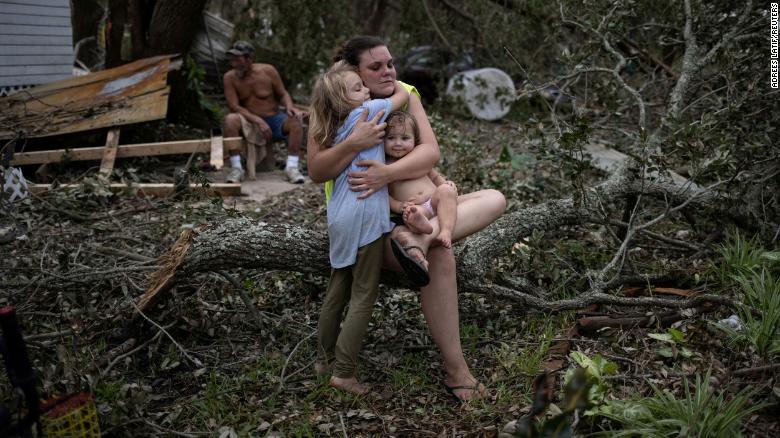
His multi-story apartment building in New Orleans, like much of the city, has been without power since the storm hit. Elevator service is out, and arthritis in his leg makes navigating the stairs difficult.
"(I'm looking forward to) just a clean bath, and to be cool. You know? It's too hot," Kerry told CNN's Nadia Romero.
Around 700,000 homes and businesses in Louisiana were without power as of early Thursday afternoon, according to PowerOutage. US -- and people who are sticking around are enduring long lines outside gas stations and aid distribution sites in a battle to stay cool and mobile.
In the wind-damaged city of Kenner near New Orleans, the mayor was blunt on Saturday when asked what his city needed most.
"Power," Mayor Ben Zahn told CNN. "We suffered a lot. ... When you don't have power, you need ice. So we have been trying to give as much ice out as we can, because people need to keep things as cold as possible."
High temperatures will be in the high 80s or low 90s in southeast Louisiana and southern Mississippi on Saturday, with the heat index -- what the temperature feels like with humidity and other factors -- generally in the mid-90s, the forecasters said.
Entergy Louisiana, which provides electric service to more than one million customers, has estimated that power will be restored to the vast majority of its customers by Wednesday.
READ MORE: Meteorologist explains how Ida reversed the flow of Mississippi River
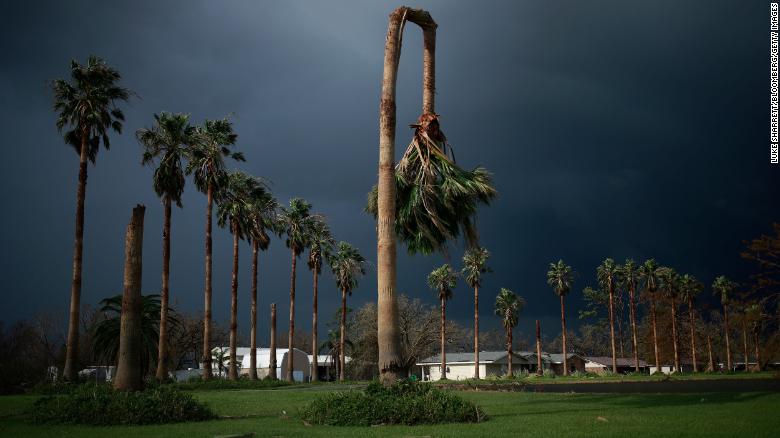
Many gas stations are inoperable or don't have fuel -- and those that do have people waiting outside them for hours. Many want gas to fuel their vehicles -- some to drive out of the region, and some just to use their cars as air-conditioned places to rest. Others want to fuel their at-home generators to keep electricity going.
In once instance, frayed nerves turned deadly.
In Metairie outside New Orleans, a man waiting for gas was shot and killed Friday, apparently after he confronted a man who cut the line, Jefferson Parish Sheriff Joseph Lopinto said.
A suspect turned himself in Friday night and claimed self-defence, "which doesn't match up any of the witness testimony," Mr Lopinto told reporters Saturday.
The sheriff urged patience at the pumps.
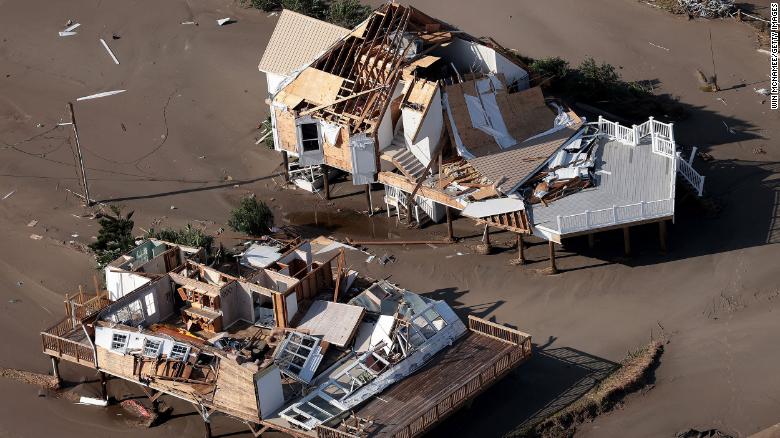
"(We don't) have enough policemen out there on the street to ... sit in every single gas station to play babysitter," he said. "We ... need people to act like adults."
As for people wanting to leave New Orleans: The city is shuttling people from 12 pickup sites to the convention centre, where they will be registered. From there, buses will take them to the shelters elsewhere.
'I'm just wondering where the help is'
Outside an uptown New Orleans gas station Saturday morning, motorists waited in massive, serpentine lines even several hours before the facility was due to open.
A day earlier, Eric Mertz drove 20 miles from his home in neighbouring St. Charles Parish to wait for gas outside a New Orleans gas station, where he believed the lines were shorter than they were near his home.
He still waited hours.
"I'm just wondering where the help is," Mertz said Friday. "I don't have air conditioning. No lights. I had COVID last year. I was in the ICU for 14 days, and I'm on oxygen (treatments now). And I don't have no electricity -- it's rough."
The storm made landfall August 29 as a Category 4 hurricane, leading to the deaths of at least 13 people in Louisiana and Mississippi and devastating infrastructure there. Remnants of the storm then pummelled the East Coast on Wednesday, triggering flash floods and tornadoes and killing dozens more.
As of Saturday morning, the majority of gas stations in Baton Rouge (74.3 per cent) and New Orleans (65.6 per cent) were without gas, according to outages compiled by GasBuddy. More than half of the gas stations in Lafayette similarly didn't have gas.
Those outages are being driven by a combination of spiking demand and complications supplying the fuel caused by power outages, analysts said.
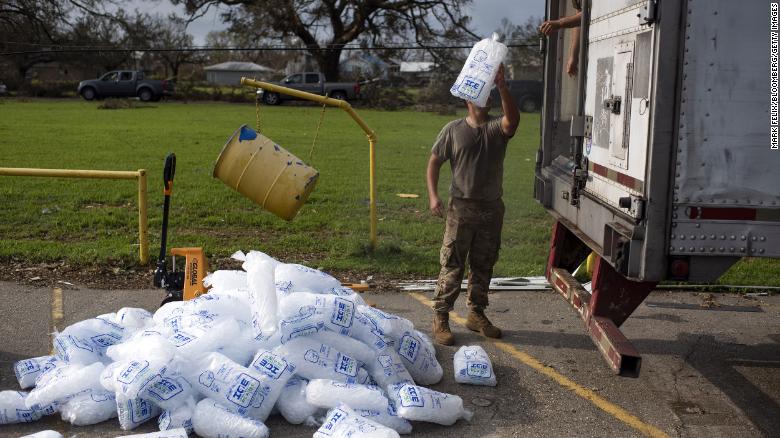
Nursing home deaths under investigation
As Louisiana tries to recover, the state attorney general announced on Friday an investigation into the deaths of some nursing home residents who were being sheltered in a warehouse ahead of the storm.
Four residents had died by the time the investigation was announced, though a fifth died after being removed from the shelter, officials said Friday.
More than 800 residents of seven nursing homes had been brought to the warehouse in the town of Independence ahead of the storm, and all were removed by Thursday over concerns about conditions there, officials said.
The town's police chief said it appeared the operators were struggling to meet patient needs and the facility struggled to maintain power, and the attorney general has said the investigation will focus on who sent patients to the "apparently unsafe and potentially inappropriate facility."
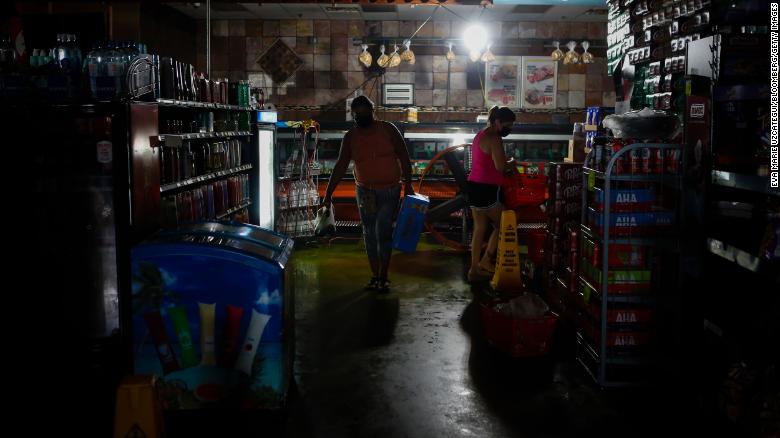
Biden visits Louisiana: 'I promise to have your backs'
President Joe Biden visited Louisiana on Friday to survey damage from Hurricane Ida, acknowledged people's frustration at the pace of power restoration, and promised federal help.
"We're not going to leave any community behind, rural, city, coastal, and I promise to have your backs until this gets done," Biden said.
Thursday afternoon, the Biden administration announced it would be releasing 1.5 million barrels of crude oil from America's emergency stockpile, hoping to eventually help ease gas shortages.
In severely flooded St. John the Baptist Parish west of New Orleans, some water service is being restored, but much of the area still is without necessities, parish President Jaclyn Hotard said.
"There is no power anywhere in the parish, and we're still struggling with communications," Ms Hotard told CNN's Bianna Golodryga on Friday.
"When we were in neighbourhoods today just assessing needs on the ground, many people don't know of all of the places we have available for pod sites, with ice and water and MREs and other food distribution, because they don't have any communications and/or they don't have any electricity to charge up the communications they do have," Ms Hotard said.
